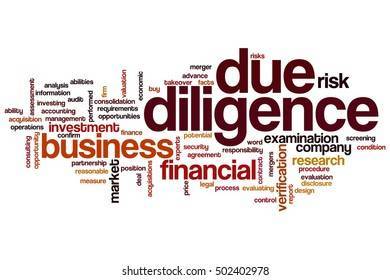- 9825 Marina Blvd #100, Boca Raton, FL 33428
- 561-609-7325
Follow Us :

John C. Bucher is a highly respected business broker in Florida, specializing in helping entrepreneurs, investors, and business owners buy and sell businesses and franchises across the state. With years of hands-on experience and a strong track record of successful transactions, John has earned a reputation for professionalism, integrity, and results-driven service.
November 20, 2025

The due diligence process for business buyers is one of the most important steps in any acquisition. It’s the phase where buyers verify that a business is exactly what it appears to be—financially, operationally, legally, and strategically. Whether you’re purchasing a small local business or a mid-sized operation, due diligence reduces risk, confirms valuation, and ensures that you’re making an informed, confident decision before closing the deal.
In today’s acquisition landscape, deals move quickly, competition among buyers is rising, and sellers are more prepared than ever. That means buyers need a structured, thorough approach to due diligence to avoid costly surprises. A single overlooked detail—such as customer concentration, undocumented liabilities, or inconsistent financials—can turn what looked like a profitable acquisition into a risky investment.
This guide breaks down every major component of the due diligence process, showing business buyers exactly what to review, what to verify, and what red flags to watch for. It also helps sellers understand what buyers are evaluating so they can prepare their business in advance and facilitate a smoother transaction.
Due diligence is the comprehensive investigation that takes place after an offer is accepted but before the deal is finalized. It’s essentially the buyer’s opportunity to “look under the hood” and ensure there are no hidden risks, financial inaccuracies, or operational issues that could affect the business’s performance post-acquisition.
This process protects the buyer by confirming:
When conducted properly, due diligence gives buyers confidence that the business they’re purchasing is stable, profitable, and aligned with their long-term goals.
Acquiring a business is a major investment. Due diligence minimizes risk by analyzing the real performance of the business, not just the story presented in the listing. Buyers who skip or rush this stage often encounter:
Thorough due diligence helps buyers avoid these pitfalls and negotiate adjustments if issues are uncovered.
The goal isn’t just to verify data—it’s to understand the true stability and growth potential of the business.
The due diligence process follows a structured timeline. While each deal is unique, the review typically occurs in three major phases:
Before going deep into documentation, buyers begin with a preliminary assessment of the business. This phase includes:
If anything appears seriously off during this stage, buyers may adjust their offer or reconsider the acquisition altogether.
Once basic information is validated, the buyer moves into a detailed investigation that can last anywhere from 30 to 90 days. This is the heart of the due diligence process where every element of the business is examined thoroughly.
During this phase, buyers validate:
This stage requires close collaboration between the buyer, seller, accountants, and attorneys.
After the detailed review is complete, buyers move into the final verification phase. This includes:
This last review is critical for preventing last-minute issues that could delay the deal.
Financial due diligence is often the most important component of the entire process. It’s where the buyer confirms that the business’s revenues, expenses, and profitability are accurate, consistent, and sustainable.
Buyers rely on this phase to determine whether the valuation is justified and if the business is capable of producing reliable cash flow. Any inconsistencies found here could lead to renegotiation or even withdrawal from the deal.
Buyers examine:
This helps validate whether the seller’s stated numbers align with official records.
Cash flow drives valuation. Buyers analyze:
This verification ensures that the income reported on paper is actually being generated in reality.
Hidden liabilities can drastically impact profitability. Buyers review:
They also recalculate add-backs to confirm they are legitimate and not artificially inflating earnings.
Operational due diligence focuses on how the business runs on a daily basis. Even if financials look strong, poor operations can be a major risk for buyers. This phase helps determine whether the business can function smoothly during and after the transition.
Operational strength often separates valuable businesses from those that require heavy restructuring. Buyers want to know how much time, effort, and expertise will be required once they take ownership. The more documented and structured the operations, the more attractive the business becomes.
Clear, detailed Standard Operating Procedures (SOPs) allow a business to perform consistently regardless of who is running it. Buyers evaluate:
The presence of SOPs signals that operations can be transferred without major disruption. Without them, buyers may fear the business is overly dependent on the current owner—one of the biggest deal-breakers in acquisitions.
Buyers also examine the business’s relationships with suppliers, including:
High supplier dependency, especially on one vendor, increases risk. Changes in cost, availability, or terms could impact margins. Buyers want diversified, reliable vendor relationships that ensure continuity.
The strength and stability of the team heavily influence buyer confidence. A skilled, well-managed team means smoother operations and less owner involvement.
Buyers evaluate:
A business that relies heavily on the owner—or a single key employee—creates transition risk, often impacting valuation.
Legal due diligence protects buyers from unexpected liabilities. Even profitable businesses can carry legal risks, especially if they operate in highly regulated industries or have long-term contracts in place.
This phase involves attorneys reviewing all essential documents to ensure compliance and identify potential issues that could affect the sale or future operations.
Buyers thoroughly review:
Contract transferability is especially important. If a buyer cannot legally assume a contract, it could delay or jeopardize the transaction.
Compliance issues can lead to fines, forced shutdowns, or legal challenges. Buyers verify that the business holds proper:
Any missing or expired licenses must be addressed before closing.
Undisclosed lawsuits or disputes can quickly derail a deal. Buyers analyze:
This is one of the most important phases because legal surprises can be expensive and damaging.
Customer stability determines future revenue predictability. Even if the business is financially healthy, customer concentration or poor retention can be major red flags.
Marketing and customer due diligence helps buyers understand how the business acquires, retains, and engages customers.
Buyers look closely at whether:
High concentration risk lowers valuation and often requires renegotiation.
In today’s market, digital visibility is a major selling point. Buyers analyze:
A strong online presence shows resilience, trustworthiness, and consistent demand—making the business more attractive.
Buyers want to understand the company’s place within the industry. This includes:
A strong competitive advantage helps justify pricing and predicts long-term sustainability.
Technology plays a major role in how scalable and efficient a business is. Buyers want businesses with modern systems that simplify operations and reduce reliance on manual processes.
A robust CRM system:
Buyers look for automation tools that support:
These systems make transitions smoother and reduce training time.
Buyers review:
Strong digital assets significantly impact valuation, especially for service-based and online businesses.
During due diligence, buyers don’t just verify numbers—they recalculate the business’s true value. This is where the buyer compares the seller’s valuation against the verified financial performance.
If discrepancies arise, the buyer may renegotiate the purchase price or request adjusted terms.
Buyers analyze and adjust earnings based on:
This verification ensures the valuation is grounded in actual performance.
Common issues discovered during due diligence include:
Any of these issues can change the deal structure or valuation.
Even strong businesses can reveal hidden issues during due diligence. Business buyers use this stage to uncover any risks that may affect long-term profitability, operational stability, or legal compliance. These red flags often determine whether the deal goes forward, stalls, or requires a renegotiation of price or terms.
One of the most concerning red flags is declining revenue. Buyers look for:
If revenue has fallen without a clear cause or recovery plan, buyers become cautious. They may still pursue the deal but will often request lower pricing or protective deal structures like holdbacks or earn-outs.
Businesses that rely heavily on the owner for:
…create significant transition risk.
Buyers know that when the owner steps away, the business may suffer. This can lead to lower valuations or a requirement for extended transition periods where the seller remains involved post-closing.
When financial documents don’t match—such as discrepancies between P&Ls, tax returns, and bank statements—buyers immediately view the business as riskier.
Common inconsistencies include:
Buyers must understand the true financial health of the business. If they can’t verify it, they may walk away.
Understanding what buyers look for positions sellers for smoother negotiations, stronger offers, and a more confident closing. Preparing early can dramatically reduce stress and prevent delays.
Sellers should organize:
The more prepared the seller is, the easier it is for buyers to move quickly and stay confident.
Business buyers want to see:
The less a business relies on the seller, the more attractive it becomes and the higher the valuation buyers are willing to offer.
Conclusion
The due diligence process for business buyers is a critical step that ensures a business is financially sound, operationally stable, legally compliant, and strategically aligned with the buyer’s goals. While every deal is unique, the underlying purpose remains the same: to protect the buyer from unnecessary risks and to confirm the business’s true performance.
Buyers who follow a structured due diligence method make better decisions, negotiate more effectively, and experience smoother transitions. Sellers who understand this process gain an advantage by preparing early, maintaining clean documentation, and communicating transparently throughout the review.
🔎 Mandatory Disclaimer
Disclaimer:
Always consult a qualified attorney and accountant for proper due-diligence methodology. This article is an initial reference guide only and does not replace professional legal, tax, or financial advice.
📣 CTA — Need Expert Guidance Through Due Diligence or the Sale of Your Business?
Work with professionals who understand valuations, documentation, negotiations, and due-diligence preparation from start to finish.
👉 Visit: https://kmfbusinessadvisors.com/
KMF Business Advisors helps business owners organize their financials, prepare for buyer review, reduce risk issues, and navigate the full sale process with confidence. If you’re buying or selling a business, their expertise ensures a smoother, safer, and more profitable transaction.